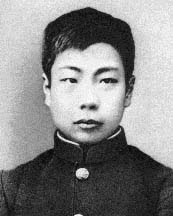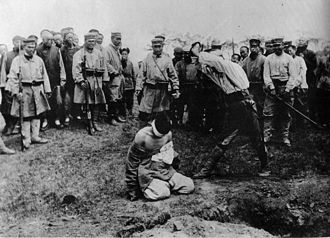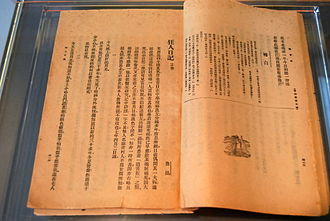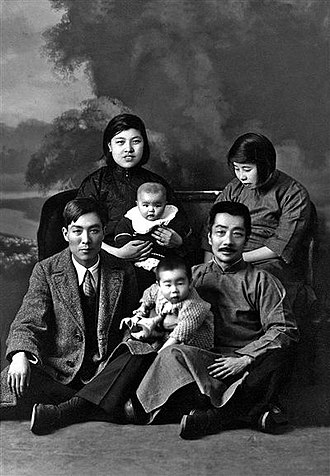THE MAN WHO
SHAPED MODERN
CHINESE CULTURE
And who still have huge influence over it
-

LU XUN


Early Life
Lu Xun, born Zhou Shuren on September 25, 1881, in Shaoxing, Zhejiang Province, China,
was a prominent Chinese writer, essayist, and critic. His early life was marked by several key
events that would greatly influence his later works and political views.
Lu Xun was born into a
family of relatively modest means. His father, Zhou Boyi, was a scholar-official who had failed the
imperial examinations and worked as a minor official. His mother, Zhu Rui, came from a scholarly
family. Lu Xun was the third of four brothers.
Lu Xun received a traditional Confucian education
during his childhood, which was typical for a boy of his social background. However, his education
was disrupted by family financial difficulties and his father's early death when Lu Xun was only 14
years old.
Lu Xun's father's death and his family's subsequent struggles had a profound impact on
him. These experiences instilled in him a sense of disillusionment with traditional Confucian values
and the social injustices he witnessed, themes that would recur in his later writings.

Study Abroad
In 1902, Lu Xun traveled to Japan to study medicine, following in the footsteps of his
older brother. However, he soon became disillusioned with the field and abandoned his medical
studies. Instead, he immersed himself in the study of literature, philosophy, and Western ideas,
which would shape his intellectual outlook and literary style.
While Lu Xun was attending medical
school, the Russo-Japanese War (1904–1905) broke out. Part of the war was fought on disputed Chinese
land. While the war was being fought it became common for lecturers to show slides of pictures from
the war to their students after their classes had ended. After one of his biology classes Lu was
shown a scene in which a Japanese soldier was about to behead a Chinese man who had allegedly spied
for the Russians, surrounded by Chinese who were apathetic to the scene. In his preface to Nahan,
the first collection of his short stories, Lu explained how viewing this scene influenced him to
quit studying Western medicine, and to become a literary physician to what he perceived to be
China's spiritual problems instead.
During his time in Japan, Lu Xun was also exposed to a wide
range
of progressive and revolutionary ideas, including Marxism, anarchism, and Darwinism. This exposure
contributed to his growing sense of social consciousness and his critique of traditional Chinese
society.


Early Career
Lu Xun's literary career began in 1918 when he published his first short story, "Diary
of a Madman" (Kuangren riji), which is considered a groundbreaking work in modern Chinese
literature. The story, written in vernacular Chinese, critiques traditional Confucian values and
addresses themes of alienation and mental illness.
Following the success of "Diary of a Madman,"
Lu Xun continued to produce a series of influential works, including short stories, essays, and
translations. His writings often focused on social criticism, political satire, and the plight of
the common people in China.
Lu Xun was deeply engaged in the cultural and political debates of
his time. He was a vocal critic of the traditional Confucian order, as well as the social and
political problems plaguing China, such as corruption, imperialism, and inequality. He used his
writings as a platform to advocate for social change and reform.

Later Life
Throughout his later life, Lu Xun continued to write prolifically, producing a wide
range of works, including short stories, essays, prose poetry, and translations. His later writings
often delved deeper into themes such as the struggle for social justice, the impact of modernity on
Chinese society, and the search for identity in a rapidly changing world.
Throughout his later
life, Lu Xun continued to write prolifically, producing a wide range of works, including short
stories, essays, prose poetry, and translations. His later writings often delved deeper into themes
such as the struggle for social justice, the impact of modernity on Chinese society, and the search
for identity in a rapidly changing world.
In his later years, Lu Xun suffered from deteriorating
health, including bouts of tuberculosis. Despite his illness, he continued to write and participate
in intellectual and cultural activities. He passed away on October 19, 1936, at the age of 55,
leaving behind a rich legacy of literary works and a profound influence on Chinese literature and
intellectual thought.